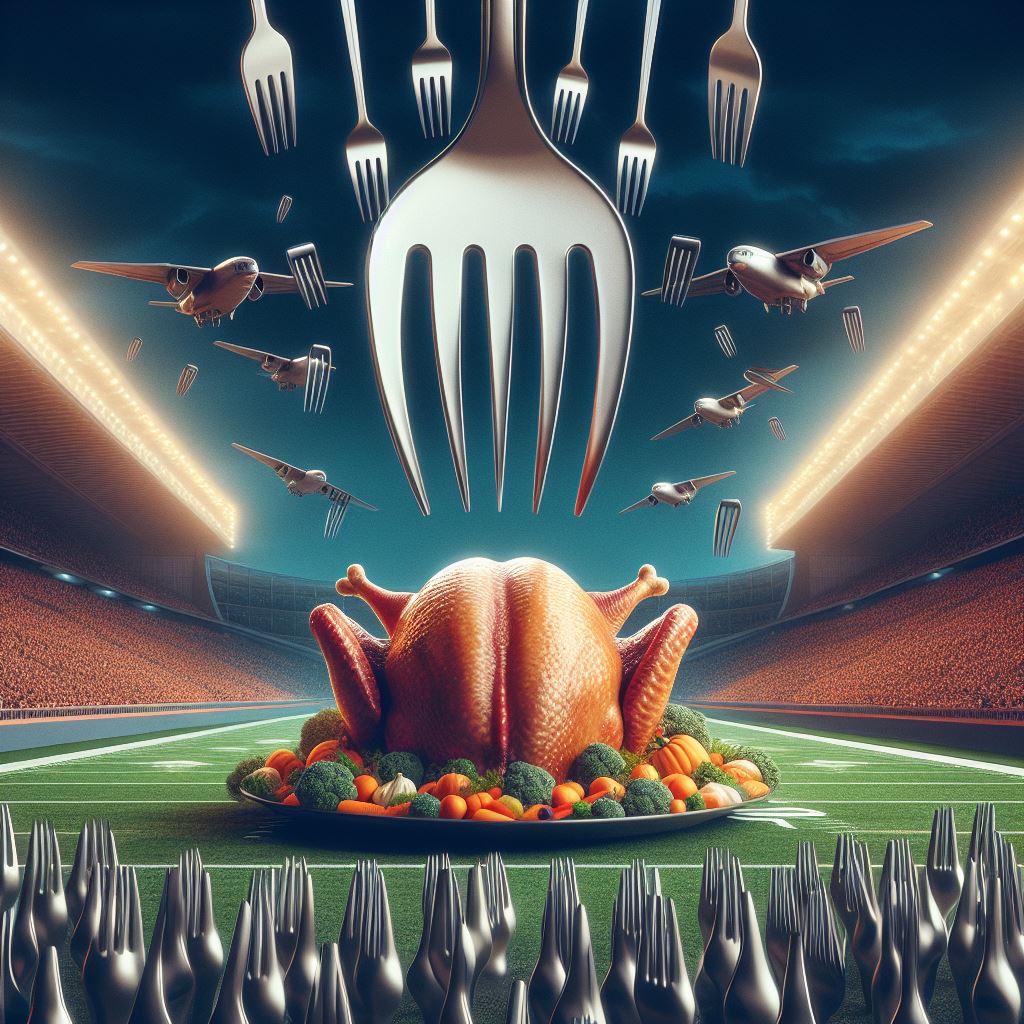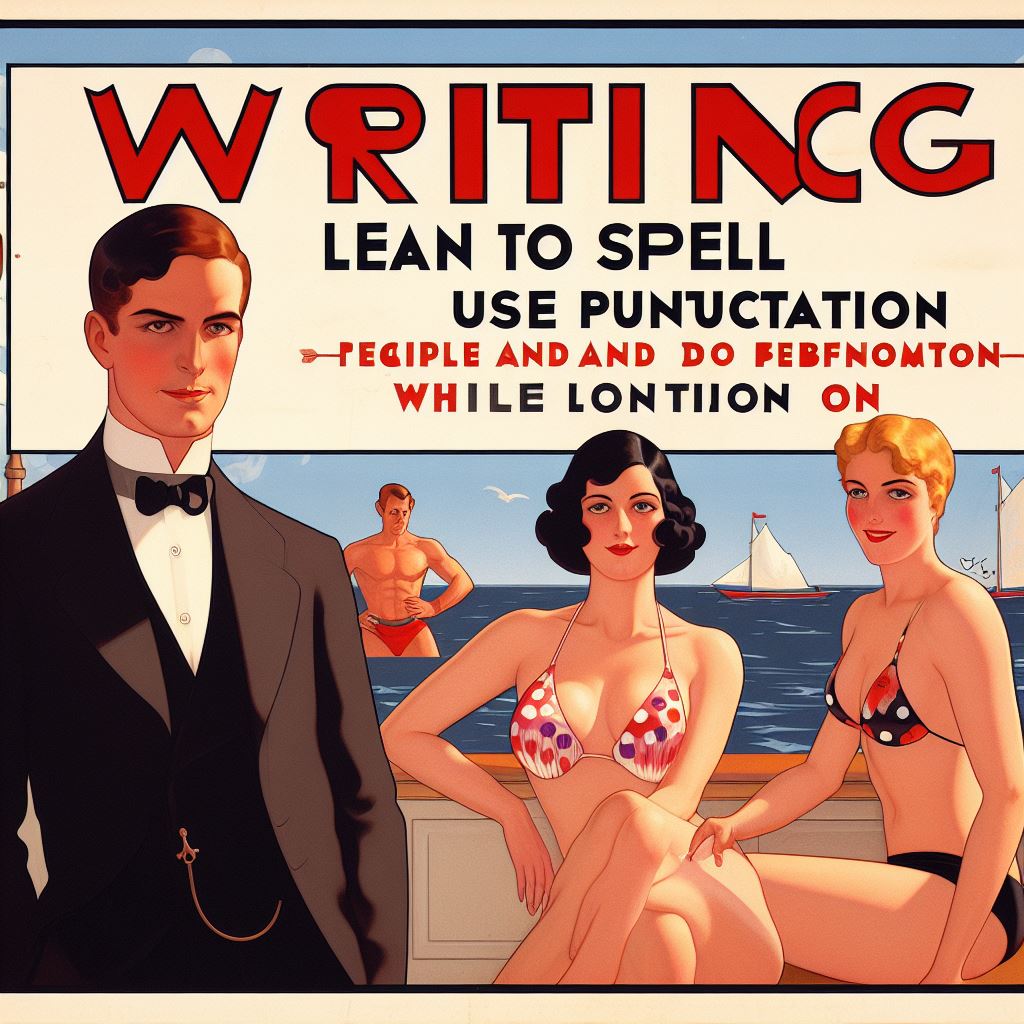Your holiday season would not be complete without an obligatory blog post that tells you how artificial intelligence can make your holiday marketing and PR content better. That’s right, there’s no sense in doing everything yourself. Automate! Use AI!
For instance, you could go to Bard, like I just did, and type in a prompt like this:

Oh my, this is gonna be brilliant. Here’s suggestion 1 of 7 — SEVEN!!! — to help you along:
1. Embrace nostalgia and evoke emotions
Taylor Swift is known for her ability to tap into nostalgia, and her holiday campaigns are no exception. She often references holiday traditions and classic Christmas songs, which resonates with her fans and makes them feel connected to her.
For your own holiday content, consider using nostalgic imagery and language to evoke emotions in your audience. You can also use storytelling to create a sense of warmth and connection.
Disclaimer: The above was written by AI. I couldn’t come up with something so banal by myself. I need inspiration.
But wait, it gets better…here’s item number 5. Because you can always shoehorn SOCIAL MEDIA into your holiday content!
5. Leverage social media to reach a wider audience
Taylor Swift is a social media pro, and she uses her platforms effectively to promote her holiday campaigns. She often shares photos, videos, and exclusive content on her social media channels, which helps her reach a wider audience and generate buzz.
To maximize the reach of your holiday content, make sure you’re promoting it on your social media channels. Use relevant hashtags, share engaging content, and run contests and giveaways to attract attention.
Disclaimer: Okay, enough already. Seriously.
Another Tip: Become the Master of Absurdity
Yes, you should try to weave in as much absurdity in your Holiday Marketing. Is it absurd to consider the Bing AI Generator to…
Well, first you need to start with Thanksgiving, and Football, and the old phrase “Stick a Fork in [INSERT TEAM NAME], they’re done!].” Ask AI to create an image like this…

And the winner is…

Thanksgiving’s Over, Move on to Black Friday
Oh, this is gonna get good.
If you follow our Substack, you might have seen that we’ve played around enough with AI to figure out that the image maker thing can’t spell. In this case, you spot it “Black” and “Friday” and it somehow finds a way to fail.
Or it drops a couple letters.

But at least the ad looks sorta modern.
What’s The Point?
Everywhere you turn, you seem to see something or someone telling you that generative AI is going to change your life for the better, immediately. And sure, being able to run tons of options through a machine is great, or asking for a machine to create a bunch of words that you can then turn around and make mad bank from is also great.
Until it’s not great. Until you outsource the thinking. Until you just phone it in.
My Absurdity Playground of AI Imagery — I should consider trademarking the phrase “Absurdity Playground” — hasn’t been done for any other reason than amusement. I’m trying to push the limits of absurdity and using AI to do that and it’s semi-clever, but I never plan on “going pro” at it.
So there’s the point: if you want to really make things happen at work — especially as a professional marketer, PR person, or communicator — you need to focus on asking this question:
What Business Problem Are We Trying to Solve?
Are you trying to churn out better content? Great. What problem will that solve? Do you need to book more appointments, or 10x your sales?
Oh, it’s about “Thought Leadership!” That’s the business problem you’re trying to solve, right? Being “out there” as a “thought leader!” Great. Are your thoughts original? If not, are they researched? Do they have a point of view? Or are they just…banal, trying to leverage the next big thing?
Here’s the Advice: Blocking and Tackling
Table stakes for the communicator: there needs to be a reason to do what you do, or else you’re just an order taker, filling out forms, generating words and images to make the bosses happy.
Figure out why you’re doing what you’re doing and things will go a lot more smoothly.
Also, be sure to know how to spell and use punctuation.







